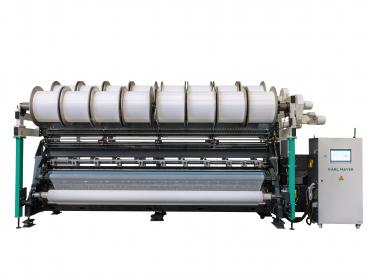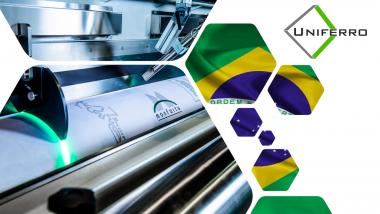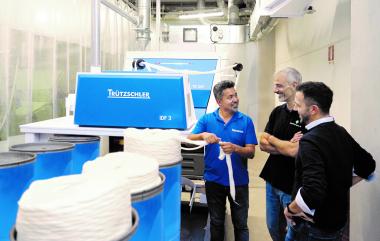KARL MAYER: Successful sale of MAX GLASS ECO composite machine
With the MAX GLASS ECO, the KARL MAYER Technical Textiles Business Unit offers a production machine for the economical manufacture of standard reinforcement textiles made from glass fibers, in particular non-crimp fabrics for the wind power industry. The newcomer can be adapted to the requirements of different application areas thanks to various optional functions and combines short amortization times. At a maximum speed of 1,800 min-1, it produces up to 410 m/h at a working width of 101". This performance is very well received on the composite market. Since the launch of the MAX GLASS ECO at JEC World in March this year, several purchase agreements have already been signed.
Some machines are going to India, and a larger number has been ordered by Chinese customers. Even the demonstration models in the KARL MAYER GROUP customer centers in Changzhou and Chemnitz have already been sold. However, the MAX GLASS ECO at KARL MAYER Technische Textilien in Saxony can still be used for processing trials and performance tests until September.
There is also great interest in Eastern Europe. At Techtextil 2024 in Frankfurt, for example, the new composite machine was a topic of numerous meetings with Ralf Schramm, Sales Manager at KARL MAYER Technische Textilien for this region. "I held many orientation discussions about the machine's performance. But there were also customers with specific purchase requests, including the Polish manufacturer of high-quality, professional solutions for the composites industry, Rymatex," says the sales professional.
KARL MAYER Verwaltungsgesellschaft AG
















